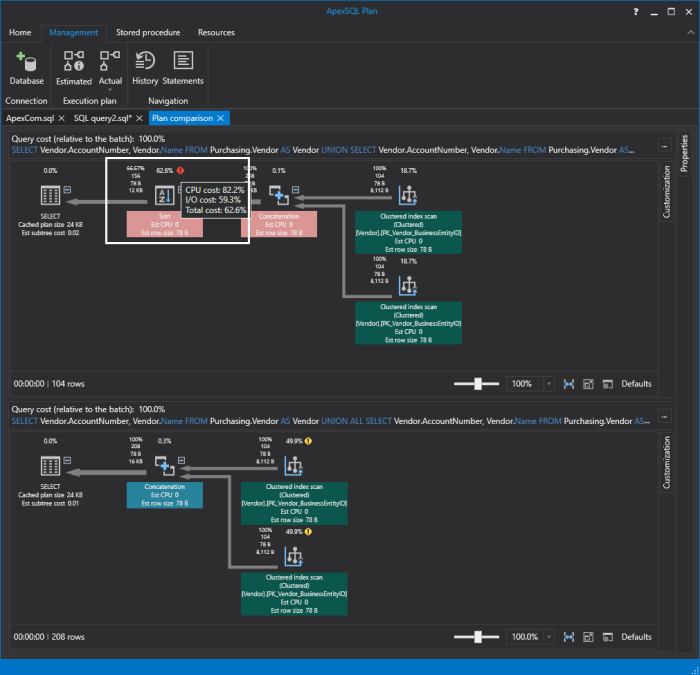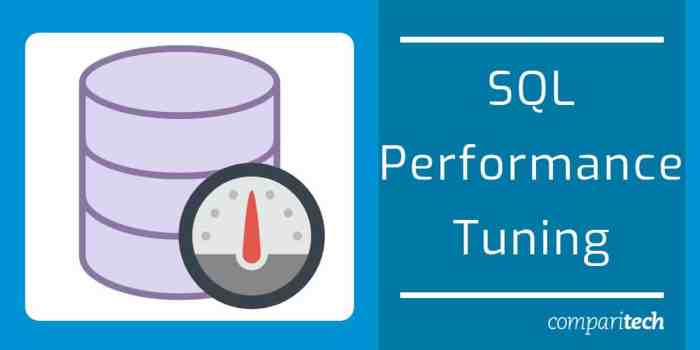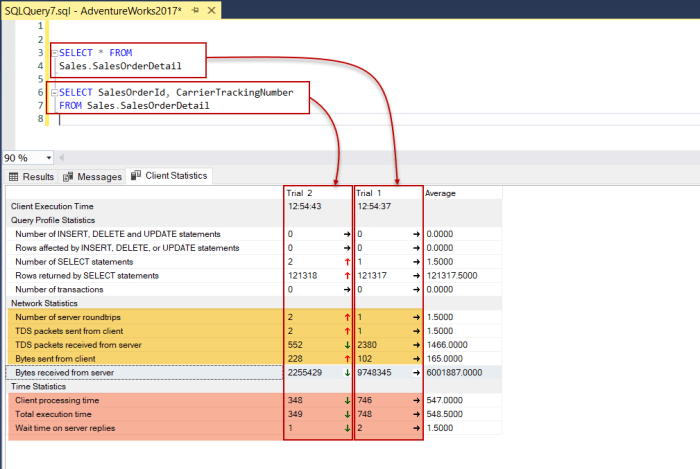SQL query performance tuning interview questions are a critical aspect of database engineering interviews, testing candidates’ ability to optimize database queries for maximum efficiency. This guide delves into the intricacies of SQL query performance tuning, providing insights into index structures, query optimization techniques, data modeling, query plan analysis, and database configuration.
By understanding these concepts, candidates can confidently tackle these interview questions and demonstrate their expertise in database performance optimization.
Index Structures: Sql Query Performance Tuning Interview Questions

Indexing is a crucial technique in database performance tuning. An index is a data structure that speeds up data retrieval by organizing data in a specific order. Different types of index structures have varying impacts on query performance:
- B-tree index:A balanced search tree that supports efficient range queries and equality comparisons.
- Hash index:Uses a hash function to map data values to physical locations, providing fast lookups for equality comparisons.
- Bitmap index:A space-efficient index that uses bitmaps to represent the presence or absence of values, enabling efficient set operations.
The choice of index structure depends on factors such as query patterns, data distribution, and database workload. Proper index selection can significantly improve query performance by reducing the number of disk accesses and improving data retrieval efficiency.
Examples of Index Structure Optimization, Sql query performance tuning interview questions
- Creating a B-tree index on a frequently used search column can speed up range queries.
- Using a hash index on a primary key column can optimize equality lookups.
- Employing a bitmap index on a column with a high cardinality can facilitate efficient set operations.
Top FAQs
What is the primary goal of SQL query performance tuning?
The primary goal of SQL query performance tuning is to optimize database queries to execute as efficiently as possible, reducing response times and improving overall system performance.
What are the different types of index structures available in SQL?
SQL supports various index structures, including B-tree, hash, and full-text indexes, each with its own strengths and use cases for optimizing query performance.
How can query optimization techniques help improve query performance?
Query optimization techniques such as query rewriting, index utilization, and predicate pushdown can significantly enhance query performance by reducing the number of I/O operations and optimizing query execution plans.
What is the role of data modeling and normalization in query performance?
Proper data modeling and normalization can improve query performance by reducing data redundancy, eliminating data anomalies, and ensuring efficient data access patterns.
How can query plan analysis assist in identifying performance issues?
Query plan analysis provides valuable insights into the execution plan of a query, allowing database engineers to identify performance bottlenecks, such as inefficient join operations or unnecessary data scans.

